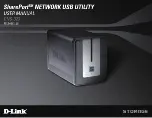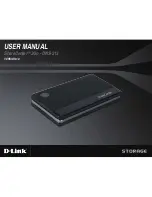
Chapter 2: Hardware Installation
2.3.3 Preparation
․
Make sure you are aware of the related positions of each plug-
in module and interface connector.
․
Cables for connecting Fibre and SAS devices must be handled
with care and must not be bent. To prevent emission
interference within a rack system and accidental cable
disconnection, the routing path must be carefully planned.
2.4
General Installation Procedure
Following all the instructions provided below can ensure correct
installation and minimize installation time. Detailed, illustrated
instructions for each component are given in the following sections.
1.
Unpack:
Unpack the subsystem and confirm that all components
on the list were included. (See
Section 2.5
)
2.
Rack/Cabinet installation:
If the subsystem is going to be
installed in a rack or cabinet, that should be done before the
enclosure is populated by hard drives. Installing the subsystem
into a rack or cabinet requires at least two (2) people. (See
Section 2.6
)
3.
Install hard drives:
Separately purchased SAS or SATA-II hard
drives must be individually installed into the drive trays. (See
Section 2.7
)
4.
Install drive trays:
After the hard drives have been secured in
the drive trays, the drive trays must be installed into the
enclosure itself. (See
Section 2.8
)
5.
Cable connection:
Use the supplied power cords to connect the
subsystem to main power. It is recommended to connect power
cords to separate and independent power sources, e.g., a UPS
device, for higher redundancy. Make sure your subsystem is
electrically grounded.
Use separately purchased Fibre Channel optical cables and
transceivers to connect host ports to FC switches or host
computers. (See
Chapter 3
)
CAUTION!
Cables for connecting Fibre Channel devices must be handled with
care. They must not be bent and the routing path must be carefully
planned to prevent emission interference within a rack system.
2-5
















































